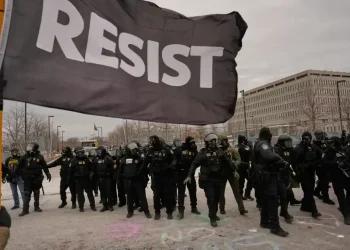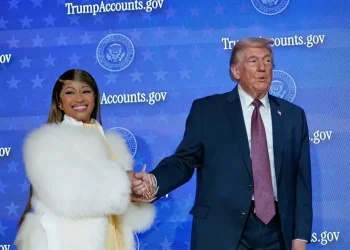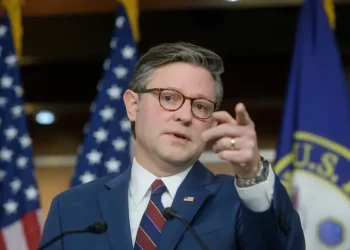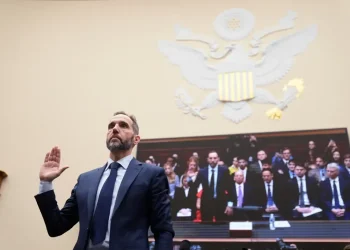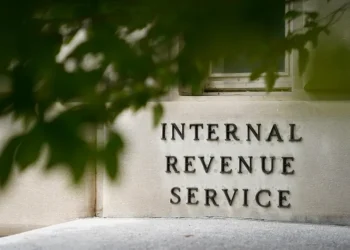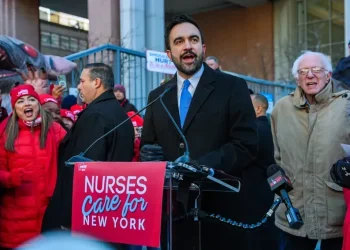Trump’s Plan to Shutter USAID Sparks Legal Concerns and Constitutional Debate
President Donald Trump’s plan to shut down the U.S. Agency for International Development (USAID) without congressional approval has raised significant legal and constitutional concerns. Legal experts argue that this move challenges the separation of powers and defies long-established political and legal norms.
Trump’s Bold Assertion
The controversy began when Elon Musk, a close advisor to Trump, confirmed that the president had signed off on dismantling the agency. Musk did not specify an executive order, but the announcement set off alarm bells. Shortly afterward, Secretary of State Marco Rubio revealed he had appointed Peter Marocco to review USAID’s operations and determine how to potentially reorganize or eliminate the agency.
“We’re really in uncharted territory here,” said Steve Vladeck, a Georgetown University Law professor and CNN Supreme Court analyst. “We’ve never seen a president try to unilaterally destroy an agency that Congress created.”
In a brief statement to CNN, Trump argued he had the authority to dissolve USAID without Congress’ input, especially when dealing with issues like fraud. “We just want to do the right thing,” Trump said, defending his decision. “This should have been done a long time ago.”
USAID’s Mission
USAID is responsible for distributing billions of dollars globally to combat poverty, disease, and natural disasters. It also supports democracy-building initiatives, non-governmental organizations (NGOs), and independent media. Trump’s assertion that he could single-handedly close the agency is in direct conflict with the constitutional role Congress plays in creating and dissolving federal agencies.
Legal Experts Push Back
Matthew Kavanagh, a professor at Georgetown University, explained that the power to create or abolish federal agencies rests with Congress, not the president. “The Supreme Court has long recognized that Congress has the power to legislate, including creating or abolishing agencies,” Kavanagh said. “The president cannot unilaterally abolish an agency that Congress created—it would be unconstitutional.”
USAID, founded in 1961 during President John F. Kennedy’s administration, has long enjoyed bipartisan support. During Bill Clinton’s presidency, Congress passed a law formalizing its structure, though it allowed the president the option to keep USAID within the State Department. Clinton chose not to, allowing the agency to operate independently.
The Rubio Factor
Marco Rubio, now Secretary of State, attempted to reassure lawmakers that the agency’s future would be handled within the bounds of the law. In a letter to Congress, he said the agency would undergo a review to determine how to “maximize efficiency” and align operations with U.S. interests. He also hinted that parts of USAID might be absorbed into the State Department.
A Constitutional Test for Trump and Congress
While Trump’s proposed shutdown of USAID aligns with his broader goal of reshaping the U.S. government bureaucracy, it is testing the limits of executive power. Kavanagh noted, “USAID is among the weakest agencies politically, which makes it an easy target for restructuring or elimination.”
If successful, Trump’s move could set a dangerous precedent for dismantling other government agencies in the future. Vladeck warned, “If the president succeeds here, this could be just the beginning. It’s not just about USAID—it’s about who has the power to make these decisions.”
Democratic Opposition and Legal Challenges
Democratic leaders have swiftly condemned the plan, calling it unconstitutional and vowing to fight it in court. Sen. Chris Murphy (D-CT) labeled it a “constitutional crisis,” and Rep. Gerry Connolly (D-VA) vowed to oppose the move in every way possible, including through the courts, public opinion, and congressional action.
However, mounting a legal challenge could be complicated. Vladeck speculated that potential lawsuits might come from USAID contractors or employees whose funding or jobs are at risk. These groups might have standing to bring cases if they can show a breach of contract or violations of civil service protections.
The Road Ahead
Trump’s decision to challenge Congress’ role in dissolving federal agencies sets the stage for a high-stakes constitutional battle. As this unprecedented situation unfolds, both legal experts and political leaders will be watching closely to see whether the president can successfully dismantle a key agency without legislative approval—or if Congress will assert its constitutional authority.
In the coming weeks, the nation may face a defining moment in the ongoing struggle over the balance of power between the executive and legislative branches.
This article was rewritten by JournosNews.com based on verified reporting from trusted sources. The content has been independently reviewed, fact-checked, and edited for accuracy, neutrality, tone, and global readability in accordance with Google News and AdSense standards.
All opinions, quotes, or statements from contributors, experts, or sourced organizations do not necessarily reflect the views of JournosNews.com. JournosNews.com maintains full editorial independence from any external funders, sponsors, or organizations.
Stay informed with JournosNews.com — your trusted source for verified global reporting and in-depth analysis. Follow us on Google News, BlueSky, and X for real-time updates.

